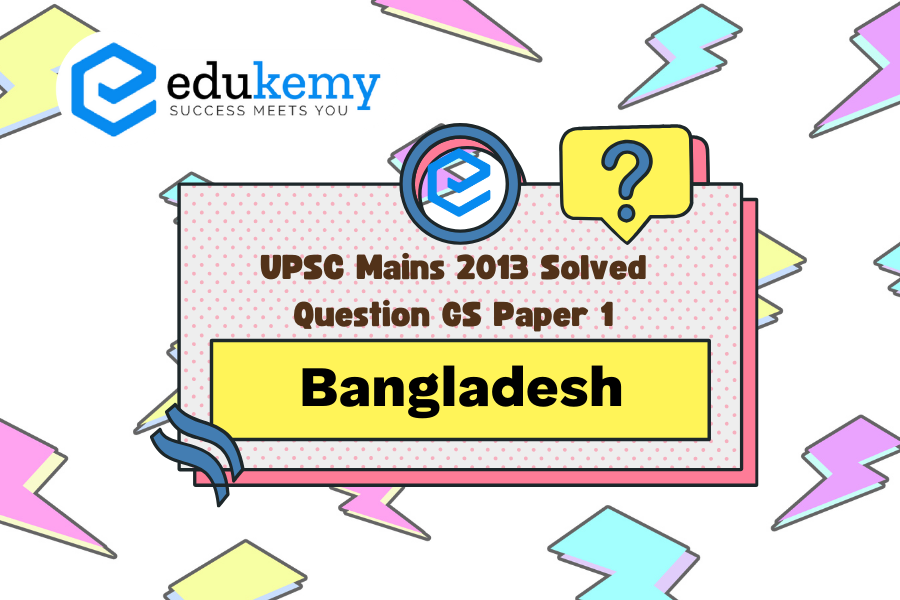The emergence of Bangladesh in 1971 marked a significant chapter in South Asian history, with India playing a decisive role in the liberation of Bangladesh from Pakistani rule. Several compelling factors drove India’s involvement in this pivotal moment. Firstly, the humanitarian crisis unfolding in East Pakistan, characterized by widespread atrocities committed by the Pakistani military against Bengali civilians, triggered moral and ethical obligations for India to intervene. The influx of millions of refugees into India placed immense strain on its resources and security. Secondly, the geopolitical calculus prompted India to act decisively. The emergence of an independent Bangladesh was seen as aligning with India’s strategic interests, countering Pakistan’s dominance in the region and potentially reshaping the balance of power in South Asia. Additionally, historical grievances stemming from the partition of British India in 1947 and subsequent tensions between India and Pakistan played a role in shaping India’s stance. Thus, a combination of humanitarian concerns, strategic imperatives, and historical context compelled India to play a critical role in the emergence of Bangladesh.
Tags: Post-independence consolidation and reorganization within the country.
Contents
Decoding the Question:
- In Introduction, try to write briefly about the background of the Bangladesh war.
- In Body, discuss the compulsions which prompted India to play a decisive role in the emergence of Bangladesh.
- Conclude the answer by stating the role played by India in creating an autonomous Bangladesh.
Answer:
The 1947 partition drew two independent nations – India and Pakistan. During 1947 – 1971, Pakistan experienced prolonged phases of military rule, which made it more difficult for ethnic minorities residing in the eastern wing to gain access to political power, social prestige, and economic development, which were enjoyed in West Pakistan.
Oppression of East Pakistan by West Pakistan:
- The tyrannical attitude destroyed unique Bengali culture, and to some extent, opposed the thought of secularism. The Pakistani government aspired to turn Bangladeshis into exemplary Muslims by alienating them from their Hindu background.
- Since the formation of Pakistan, the Western part branded the Eastern as inferior because it considered the Muslims in the eastern wing subordinate due to their social and cultural affiliation with the Hindu population, powerful, rich, and dominating in East Pakistan before the partition of the subcontinent.
- Operation Searchlight was the planned genocide on the 25th of March 1971 and was undertaken by the West Pakistani government against its own citizens of the eastern wing.
- The West Pakistani Army conferred no compassion for Bengalis, and the rules of engagement were at no time adhered to. The West Pakistani Army would kill civilians without any mercy.
Compulsions Which Prompted India to Join the War:
- India had a strained relationship with Pakistan, and having both East and West Pakistan in its border was a major security concern.
- The influx of refugees in India from East Pakistan was creating an economic burden, as well as law and order problem.
- The development of the northeast sector in India was facing multiple challenges due to the influx of refugees, and its ethnic identity was under threat.
- The atrocities committed on the people of East Pakistan was the final straw, which forced India to intervene on humanitarian grounds.
India’s role:
- Bangladesh got continuous moral support from India since when the Liberation war began.
- Indian Prime Minister Indira Gandhi was able to acquire support from the Soviet Union, the United Kingdom and France to assure that there would be no directives favouring Pakistan in the United Nations Security Council.
- Despite the protection and encouragement from the United States, Pakistan did not have high chances of winning the war as the Soviet Union played against the United States’ efforts during the war. Russians encircled the US fleet in the Bay of Bengal region, not allowing the fleet to close in on Chittagong or Dhaka, securing the independence of Bangladesh.
- Under the assistance of Sheikh Muijib-ur-Rahman Mukti Fauj, the Mukti Bahini was born soon after the crackdown by the Pakistani Army on the 25th of March, 1971. The Mukti Bahini played a key role in the Liberation War of 1971.
- After Pakistan began several attacks on Indian territory on the 3rd of December 1971, India joined Bangladesh in its military efforts against Pakistani aggression. With the Indian support and commands from the military officers of East Pakistan, the West Pakistani military was defeated.
- Pakistan eventually surrendered to the joint forces of Bangladesh and India, leading to victory for Bangladesh on the 16th of December 1971
While many Bengalis sought the guerrilla force favouring independence, many others, particularly women and children, fled the country and took refuge in India’s closest neighbouring country. It is estimated that the number of refugees taking shelter in India during the liberation war was about 10 million. Thus, India’s role in the liberation of Bangladesh and its strategic decisions at that time pay dividends even today.
In case you still have your doubts, contact us on 9811333901.
For UPSC Prelims Resources, Click here
For Daily Updates and Study Material:
Join our Telegram Channel – Edukemy for IAS
- 1. Learn through Videos – here
- 2. Be Exam Ready by Practicing Daily MCQs – here
- 3. Daily Newsletter – Get all your Current Affairs Covered – here
- 4. Mains Answer Writing Practice – here


